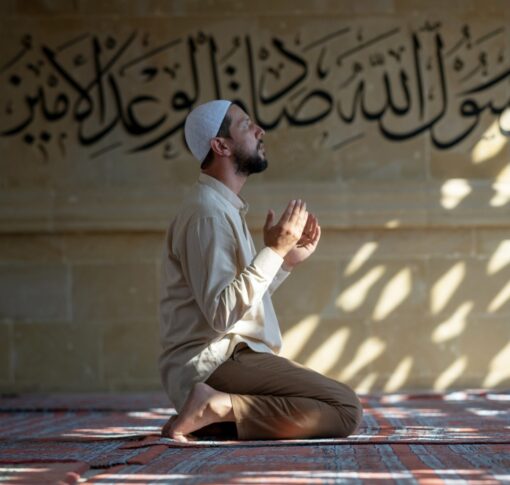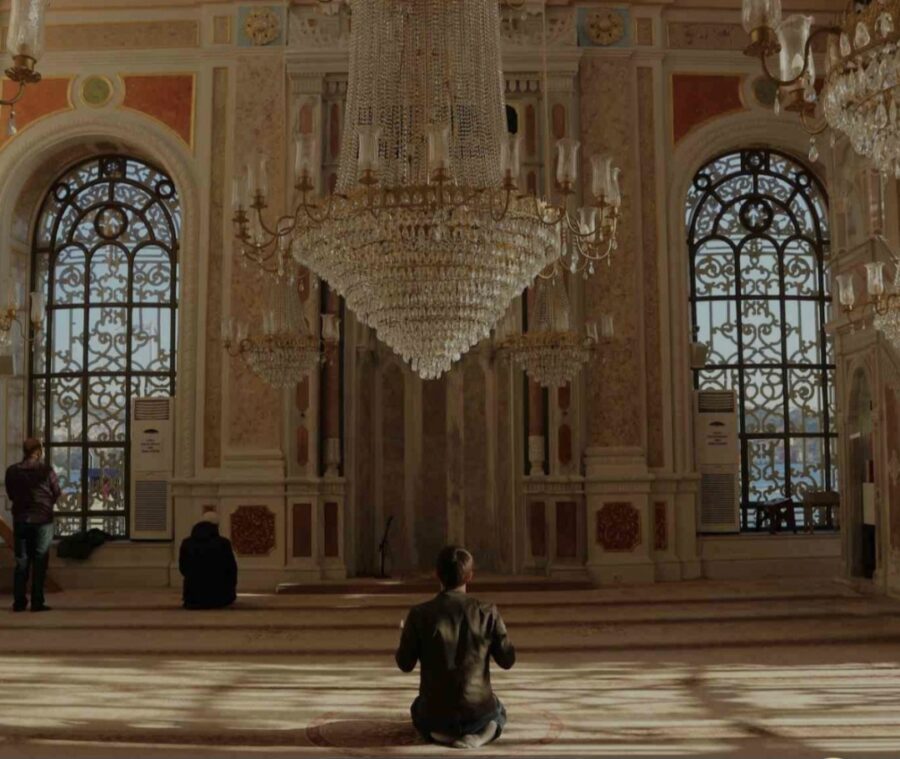The Worship of Busyness – A Psychological View on How Fast-Paced World Harms Our Prayer and How We Can Protect It
Keeping busy is a source of pride today. Relaxation is considered a reward only after hard work.
We are “spinning” 24/7, but just as appliances go on the fritz if they’re always turned on, humans pay their price too.
Muslims are no better. When was the last time you felt khusu (deep focus; humility) in your prayer?

A Fast-Paced Lifestyle Robs Us of Many Islamic Virtues
Thankfulness
The Prophet says:
“Whoever is not grateful for small things will not be grateful for large things.” (Saheeh At-Targheeb by Al-Albani 976)
Experts found that if we operate at this hectic pace too often, we become increasingly task-orientated.
This means that we no longer derive the same level of pleasure from relationships and smaller experiences.
Deep reflections
While numerous ayas of the Quran call us to “iqraa” – “read,” ponder, and reflect – researchers note that this push for speed is changing the way people think.
The need to be efficient and instantaneous leads to a dumbing down of information intake so that people become scanners of information rather than delving towards a deeper understanding.
The problem is that modern life has made us believe that progress equals fast, which equals success.
City people walk faster, not for exercise and enjoyment, but to save time for more production!
However, studies suggest that city living is associated with increased rates of depression, anxiety, and psychosis, with 39% more mood disorders and 21% more anxiety disorders.
The flight or fight mode of people’s nervous system keeps the body activated by releasing stress hormones – a recipe for addiction and depression.
Struggling to Gain Focus
Our attention span is worse than a goldfish
Imagine sitting on a bench staring at the birds playing tag.

How many minutes do you think will pass before you jump up, shouting, “I’m bored, let’s do something”?
A 2015 study by Microsoft Canada found that our average attention span—the amount of concentrated time on a task without becoming distracted—was 12 seconds in 2008.
Five years later, it was only eight seconds—one second less than a goldfish’s attention span.
I cannot even imagine where we stand today.
Without focus, our faith is in danger
If we have a global problem with focus, our prayers are in trouble too because they lack what we Muslims call khusu.
Khusu is the soul of the prayer.
Ibn Katheer says about it: “Khusu happens when a person empties his heart for it (prayer), and focuses on it to the exclusion of all else…”
If we don’t focus, khusu will not exist in our prayers. If we pray without khusu, we cannot connect with Allah properly.
Through the lenses of psychology, prayer is a form of meditation that puts your brain in the alpha brainwave state (khusu). This state enhances concentration, inspires creativity, and induces a state of deep relaxation.
Does psychology have anything to offer Muslims in improving their khusu? I asked this question as an NLP® Practitioner and a student of psychology. I found many interesting treasures.
Improving Khusu – from a Psychological Perspective
Clients in therapy need this mental state (khusu) to connect with their unconscious mind – where the solutions lie.
Therapists facilitate this process through simple techniques. I’ve taken inspiration from this approach.
Silence
Without quietness and the feeling of comfort, the doors to the unconscious mind and its perspicacity stay closed.
Therefore, therapists minimize the outside impulses that could take the clients’ attention away from their insights.
Likewise, we need to choose a quiet place for praying.
So, tell your family to turn off the TV and ask your husband to hold the baby until you pray.
Cut off all outside stimuli before you start praying and creating silence.
Slow motions
During therapy, the clients’ body posture shows relaxation.
They often fix their eyes on a certain point (usually somewhere on the floor) as they reach deeper inside themselves. Their speech and gestures slow down as well.
These signs indicate to the therapist that the client has entered the room of his unconscious mind.
So when you pray, move slowly. Salah is not an exercise routine anyway. Fix your eyes at one point on the mat. Take your time in each position.
Recite slowly. Formulate the words carefully, and stop to take a deep breath after each ayah.
The soul of meditation: breathing
Therapists teach clients that they cannot manipulate the stressors that surround them, but they can develop healthier ways of responding to them.

One way is to invoke the relaxation response (this calms down the nervous system’s fight or flight mode), and the easiest way to evoke this response is by breathing deeply.
Therapists use many types of breathing techniques to relax their clients; belly breathing, alternate nostril breathing, progressive body relaxation.
The simple 4-7-8 breathing technique might be one you also want to acquire – and maybe start and end your prayers with.
Inhale through your nose gently for 4 seconds. Now hold your breath for 7 seconds and then forcefully breathe out through your mouth for 8 seconds, emptying your lungs. Do this four times in a row.
Slow down, focus, connect with Allah
“O mankind, indeed We have created you from male and female and made you peoples and tribes that you may know one another.” {49:13}
When a fast-paced lifestyle threatens our natural human life and our faith, shouldn’t we try everything to protect our life here and in the Hereafter? Shouldn’t we strive to stay close to Allah and fight the fitnah?
If we do not slow down, it’s no wonder if we can’t improve our prayers.
If we do not improve our prayers, it’s no wonder if we feel disconnected from Allah.
SOURCE: https://aboutislam.net/family-life/self-development/how-to-protect-our-prayer-in-a-fast-paced-world/
Post Views: 238





